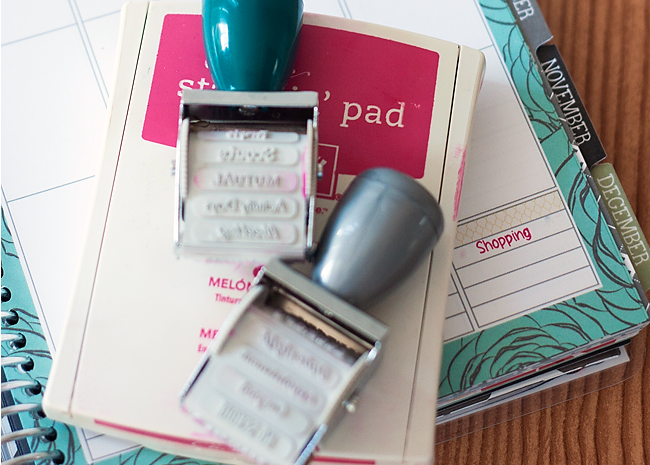How Using a Timer Will Help You Be More Productive
Do you struggle to stay on task? Using a timer is a simple trick to keep you focused—here’s why.

Do you struggle to stay on task? I do.
I’m really good at starting things, but I fully admit that finishing them often seems difficult. I get distracted, I get overwhelmed, I have no motivation. Whatever it is, many things never get finished and some of them don’t ever make it off of the to-do list.
But I have a secret productivity weapon. I’m using it right now, in fact, to keep me focused as I write. Want to know what it is?
A timer.
It seems like a totally simpleton solution, and perhaps it is, but it has made a huge difference to me and my productivity levels. (When I actually remember to use it, that is!)
Using a timer is the best way to be productive. Not only will it help you be productive, but if you use it right, it will also help your entire household productivity increase.
What kind of timer should you use to stay focused?
Any kind of timer is fine, but really try to stay away from the one on your phone. Why? Because phones can be distracting and just the simple act of shutting off the timer when it goes off means you might check email or Facebook and lose several minutes that could have been more productive. You can use the timer on your oven or microwave, or you could purchase a timer.
My favorite timer is a Cube Timer. I like it because it’s super easy to use—each cube has four time increment options—you just have to put it down with the number you want to use face up and it automatically starts timing you. I have one that has 5, 10, 20, and 30 minute increments. There are many other options available that each have slightly different time increments, or you can purchase a set of timers to give you even more options.
 |
5 ways a timer helps you be more productive
1. A timer helps you stay focused on the task at hand
I don’t claim to understand the psychology behind it, but I do know that when I am up against the timer, I work harder and don’t allow myself to get distracted. This is especially good for super boring tasks or the things you’ve been putting off for a while. Something about knowing you only have to do it for 20 minutes helps you stay focused.
Using a timer sets up a specific expectation—for this 20 minutes you are only going to work on one thing. It forces you to be accountable for those 20 minutes and keep your focus steady.
Timing my children when they are working on certain things (especially when we are under a time crunch—like getting out the door for school every morning), helps them to stay focused, too. If I tell them they only have 5 minutes to get dressed, they do it in 5 minutes so they can beat the timer. If I don’t time them, they will inevitably dilly-dally and the task will take much longer. And then they’ll miss the bus!
We used to use the timer for tooth-brushing, but found an even better solution. Check it out here: Stop Nagging Your Kids to Brush Their Teeth!
2. A timer helps you to understand your time limitations
I am the queen of writing 200 things on my to-do list each day—and then thinking it’s actually possible to do all of them! By using a timer often, I have a better sense of how long certain tasks take me. I’ve learned that most household chores go a lot faster than I think they will, so I know to only give cleaning my room 5 minutes each day—10 if it’s particularly messy.
However, a lot of other tasks take much more time than I think they will. For instance, I’ve learned that I am a pretty slow writer. I think that I can knock out a blog post in less than an hour, but it almost always takes me longer than that. And that’s fine because now I know not to place unrealistic expectations on myself, and my to-do list is a bit shorter these days.
3. A timer makes you work faster
I think it’s pretty amazing how tasks tend to fit exactly into the time allotted for them, don’t you? Maybe it’s just because I’m a bona fide procrastinator and am extremely talented at getting things done exactly at the deadline, but I kind of think the phenomenon is universal. If I say a task is going to take 30 minutes, it probably will. But what if I only give 20 minutes to that same task? Chances are, I’ll finish it ten minutes faster because I know I have less time.
 |
While realizing your limitations (see #2), a timer will still help you up your game and get things done a lot more quickly. Try it—it’s pretty amazing!
4. A timer limits your productivity breaks
My friend just told me about a documentary she watched called The Illusion of Time. I haven’t watched it yet, but apparently Einstein discovered that every person experiences time differently. The most interesting thing was that the more you move the slower your personal time goes. And the less you move, the faster time goes.
This proves what I’ve always known—when I’m working hard, time seems to go more slowly. But when I’m sitting on my butt, taking a “productivity break” and browsing the internet? Time speeds right by.
A timer helps me with this. When I’m finished with a task and want to give myself a break, I always make sure to set the timer for 10-20 minutes. Otherwise, I will get lost reading or scrolling on my phone for far too long and waste all my productivity away!
5. A timer helps eliminate overwhelm
For me, this is the number one reason I use a timer. I get overwhelmed incredibly easily (perhaps that’s one of the reasons I procrastinate so much), and the timer helps me get out of my head and into the task at hand.
When I look at the kitchen after a long day, I get so overwhelmed that I want to forget it and go crawl in bed and read. I always regret it when I give in to that overwhelm, so instead I set the timer for 30 minutes and resolve that whatever is finished when the timer goes off is enough. I can do anything for 30 minutes, right?
Usually I’m pretty surprised that I can finish in the time allotted, but even if I don’t, I still accomplished a lot because I used a timer.
Using a timer is perfect for all those tasks that don’t really have an obvious end to them, thus causing even more overwhelm and anxiety. Things like working through your email inbox, decluttering, or working through your long to-do list are prime candidates for setting a timer. You finish what you can in your allotted time and you leave the rest for the next time. It really works.
And sometimes when the timer goes off and I’m not finished, I don’t even stop. I’ve gotten into the zone and am not so overwhelmed anymore, so I can finish the job easily. Why stop when you’ve got momentum!
Using a timer has meant that I finish more things, and that feels really good. I love how it feels to be productive—it’s a heck of a lot better than the anxiety that comes with unfinished tasks!
This post may contain affiliate links, for more information, please see my disclosure.



